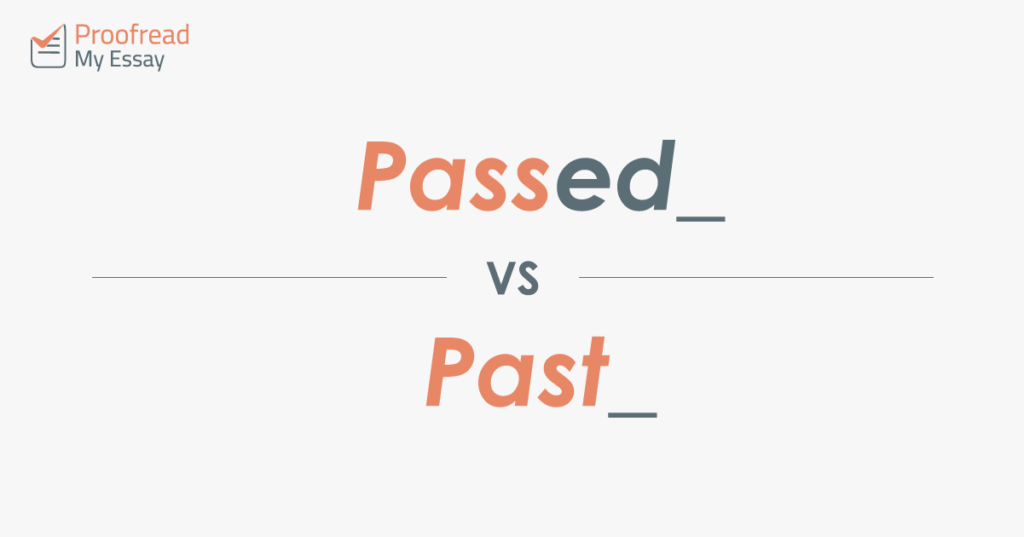We’ve been campaigning to have homophones banned. After all, spelling is tricky enough as it is, so the last thing anyone needs is words that sound the same but differ in meaning! ‘Passed’ and ‘past’, for example, sound very similar when spoken, but each term has a specific use.
As such, you won’t want to mix up these words in your work. And with our guide, you won’t have to.
Passed (Past Tense of ‘Pass’)
‘Passed’ is the past tense of the verb ‘pass’ in all of its senses. One major use is to say that we have gone past something (e.g. a point in time, a physical space, or a set limit or goal):
I passed the dog park on the way to work.
Our fundraising campaign has passed the £150,000 mark.
Other common meanings include having given something to someone and succeeding in a test:
He passed her the pen.
She passed the exam with flying colours.
There are other senses of ‘pass’ (e.g. we say that ‘time has passed’ or that someone has ‘passed away’). But in all cases, ‘passed’ always expresses an action in the past tense.
(Photo: Gage Skidmore)
Past (An Earlier Time or Beyond a Certain Point)
The word ‘past’ has several meanings, too. It is mostly used as an adverb or preposition, particularly when referring to a time or location. For instance, ‘past’ can express the idea of being or going ‘beyond’ a certain point in time or space:
He goes to bed at half past ten every day.
I pushed past the crowd to get outside.
Find this useful?
Subscribe to our newsletter and get writing tips from our editors straight to your inbox.
Otherwise, ‘past’ usually refers to time. As an adjective, it shows that something is from an earlier point in time (this is also why we refer to the ‘past tense’ in grammar):
Language has changed a lot in the past decade.
As a noun, it can even refer to everything that has happened up until the present! For instance:
Historians study the past to learn about ancient peoples.
Importantly for our purposes, though, ‘past’ is never a verb (unlike ‘passed’).
Passed or Past?
It’s easy to mix these terms up because both can relate to movement. The following sentences, for instance, mean roughly the same thing:
I passed the dog park.
I went past the dog park.
The difference is that ‘passed’ is always a verb, while ‘past’ is never one. In the second sentence above, the verb is ‘went’, with ‘past’ simply expressing how the action was performed. Were we to write ‘I went passed’ something, we’d be piling up verbs on top of one another! Remember:
Passed (always a verb) = Past tense of ‘pass’
Past (never a verb) = An earlier time or beyond something
